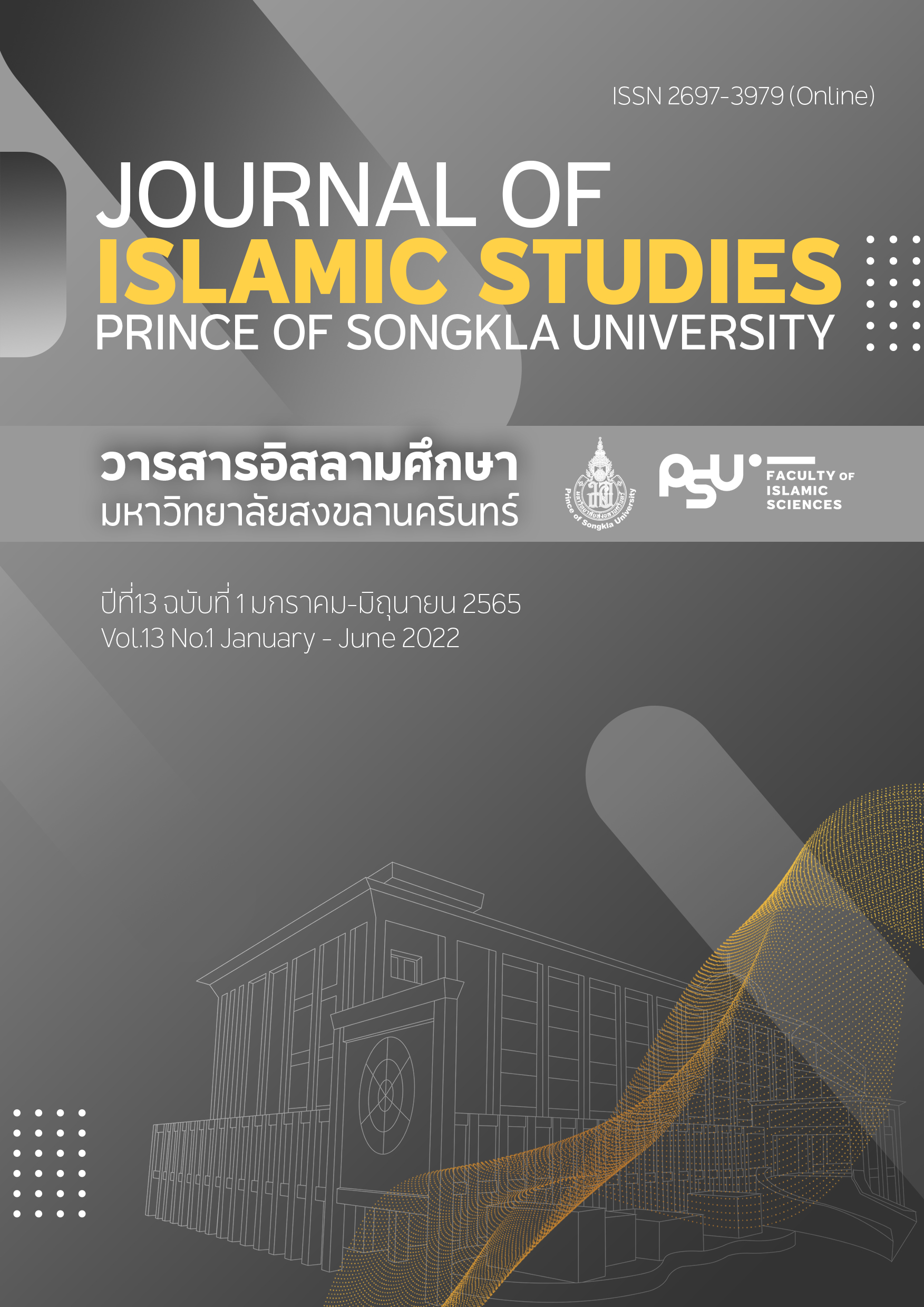Listening Immersion and its Impact on Developing some Prosody Skills and Poetry Appreciation for Non-Arabic Speakers
Keywords:
Listening Immersion, Prosody skills, Poetry Appreciation, Non-Arabic studentsAbstract
Abstract
Objective: The objective of the current research aimed at identifying the effectiveness of Listening Immersion Strategy in developing Prosody skills and Poetry Appreciation for Non-Arabic students.
Methodology: The sample of the research consisted of (20) students from the second secondary stage of Al-Azhar students in Arpil’s Institute in Iraq. It included one experimental group that studies the Prosody using Listening Immersion Strategy. The instruments of the research included Prosody acknowledge, Performance skills test, Performance notice card and Literature Poetry Appreciation standard (prepared by researcher). After verifying the validity and stability of the study tools, the researcher applied the research instruments on the sample of the study pre and post and go the results.
Research findings: The researcher found that there were statistically significant differences at (0.01) between the mean scores of the students (participants in the current research) of Prosody and Poetry Appreciation skills in the pre and post administration of strategy in favor of the post administration. This indicates the effectiveness of Listening Immersion Strategy in developing Performance Prosody, academic Prosody skills and Poetry Appreciation.
Application: In light of the results of the research, the researcher concluded a number of recommendations, and suggested a set of further research.
Keywords: - Listening Immersion - Prosody skills - Poetry Appreciation- Non-Arabic students.
References
Adams, Nathan Thomas. (2020) “Domestic vs. Foreign Immersion Experiences: Listening Comprehension of Multiple Dialects in Spanish” Theses and Dissertation. 8724.http://scholarsarchive. byu.edu/etd/8724
Abd- Al Raheem, Raed Mustafa. (2019). Language immersion in teaching Arabic for the non-Arabic speakers “Theory and practice” Saudi Arabia. Dar Wejooh for publishing and distributing.
Abd- Al Raheem, Raed Mustafa. (2019). Language immersion in teaching Arabic for the non-Arabic speakers “Theory and practice”. Dar Wejooh for publishing and distributing.
Adam, mahjoub Mohamed. (2014)”Poetry appreciation” Humanitarian sciences magazine, Al-Azhar leader magazine
Al Emary, Youssef Taha (2009). ”Effect of using Arabic language in achievement for the first three grades in schools of Al Damam, Saudi, master in general educational curricula, El Yarmouk university.
Al Idani, Genan Hassan. (2001). computerizing prosody” Digital prosody”, Master, non -published, El Basra university.
Ali, Rokia Mahmoud. (2016). Efficacy of WebQuest in developing Prosody skills for non-Arabic speakers in faculty of Education. Education magazine, Tanta university, 64(4), 191-269
Hawkins, S. (2001). Effect of Total Language Immersion as Opposed to ESL Pullout Program. Western Arkansas Middle school. Arkansas Tach University.
Hussein, Ibrahim Fareej. (2012). Efficacy of interactive multi-media based program in developing some prosody skills for Arabic department students, Reading and cognition magazine, part(1),Egyptian association for reading and cognition.
Lord, G. (2010). The Combined Effects Of Immersion And Instruction on Second Language. Foreign Language Annals, 43(3), 488-503.
Luan, Yuqin & Guo, Xiuzhen. (2011). A study on The Application of The Immersion Teaching Model to EFL Learners in Institutions of Higher Learning. English Language Teaching, 4(1), 152-155
Manaa, Amna. (2017). Language immersion and its role in achieving pronunciation. Study in its Arabic origins, ph., faculty of Arts, Kasdi merbaah university.
Manaa, Mohamed El-Said. (1994). Suggested program for developing Arabic appreciation for learners in program of teaching Arabic as a second language. Ph.D, non- published, El-Menofya university.
Mayo, Kadri. (2000). Al-Moeen in prosody and Rhythm. Alam AlKotob
Milliman, B.M. (2010). Key Components in A Successful Arabic Immersion Program for High School: A Case Study Unpublished Master Dissertation University of Texas
Public Organization for teaching &quality assurance. (2014). Standard criteria for subjects content of pre- university Al-Azhar teaching (Arabic language).
Salah, Samir Younis, Al Rashidi & Saad Mohamed. (2010). General teaching and Arabic language teaching and Arabic language teaching. Al Falah Publishing office.
Shibilat & Kuwthar Gamal,(2018). The fact of language immersion in Jordon and its effect on language competence for the non-Arabic speakers. The world specified educational magazine, 7(6), 54-64
Sultani & Mohamed Ali. (2008). The selected prosody and rhetorical sciences. Dimscuss, Dar AL- Asmaa
Teaima & Roshdi Ahmed. (1971). Making standards of literature appreciations for secondary stage students. Poetry, Master, non -published, faculty of Education, Ain Shams university.
Downloads
Published
How to Cite
Issue
Section
License
Copyright (c) 2022 Journal of Islamic Studies, Prince of Songkla University

This work is licensed under a Creative Commons Attribution 4.0 International License.
All articles Published in The Journal of Islamic Studies are author’s opinions, and not the responsibility of the Faculty of Islamic Sciences nor the editorial board. However any citation should be referred to the journal.
















